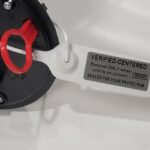A Mileage Correction Scanner, also known as an odometer correction tool, is used to read and adjust the mileage data stored in a vehicle’s odometer. These tools typically connect to the vehicle’s OBD-II port or a specific diagnostic port, allowing access to the vehicle’s computer system. This article explores the capabilities of these scanners, specifically focusing on Autel scanners.
Understanding Mileage Correction Scanner Functionality
Autel scanners, both tablet and handheld devices, connect to the OBD-II port, enabling OBD-2 diagnostics for vehicles manufactured in 1996 and later. They provide access to various vehicle ECU information and allow for clearing Diagnostic Trouble Codes (DTCs). But what about mileage-related functions?
Reading Mileage Data with a Scanner
Autel scanners can read the actual mileage stored within the vehicle’s ECU, providing a more accurate reading than the odometer display on the dashboard. This function, often referred to as “Check PCM Odometer,” is dependent on the vehicle’s make and model and the specific communication protocols supported.
Writing New Mileage Data
In situations where the ECU or instrument cluster has been replaced, Autel scanners can facilitate learning the original mileage and writing the new odometer reading. This “Gauge Control Module Replacement” function is crucial for maintaining accurate mileage records. However, this feature is typically not supported for used vehicles or modules. For optimal performance in writing new mileage, consider advanced scanners like the Autel MK906BT or higher.
Resetting Service Mileage
It’s important to distinguish between service mileage and actual driven mileage. Service mileage refers to the intervals recommended by the manufacturer for scheduled maintenance, while driven mileage represents the total distance traveled by the vehicle. Autel scanners like the DS808 offer the functionality to reset the service mileage counter.
Modifying Mileage Data: Legal and Ethical Considerations
Modifying mileage data stored in a vehicle’s odometer is illegal and unethical. Autel scanners do not support this functionality. Tampering with mileage data misrepresents the vehicle’s actual condition, potentially leading to safety hazards and financial repercussions. Furthermore, manufacturers like GM explicitly prohibit mileage modification.
Verifying Mileage Data Integrity
While scanners can read the current mileage data from the ECU, they cannot definitively determine if the odometer has been tampered with.
Conclusion: Using Mileage Correction Scanners Responsibly
Mileage correction should only be performed by qualified professionals adhering to legal regulations. If you encounter issues with your vehicle’s odometer or require accurate mileage recording, consult a trusted automotive specialist. Using a mileage correction scanner responsibly ensures accurate vehicle history and promotes ethical practices within the automotive industry.
